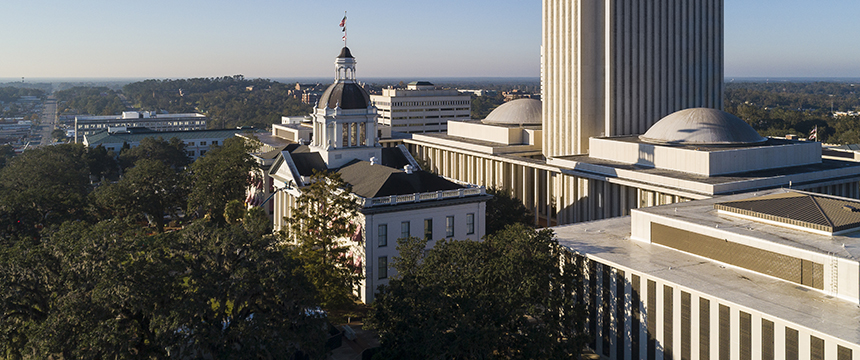
Florida Governor Ron DeSantis announced Phase 1 of Florida’s reopening plan, titled “Safe. Smart. Step-by-Step. Plan for Florida’s Recovery,” on April 29, 2020. Subsequently, the Governor issued Executive Order 20-111 (a limited extension of Executive Order 20-91 regarding essential services and activities and Executive Order 20-87 prohibiting vacation rentals), Executive Order 20-112 (Phase 1 of the reopening plan), and FAQs for Executive Order 20-112 to implement Phase 1 of the reopening plan.
Executive Order 20-111 extends the Safer At Home Executive Order that was set to expire on April 30, 2020, to Monday, May 4, 2020, at which time Phase 1 of the reopening plan commences pursuant to Executive Order 20-112. However, pursuant to Executive Order 20-112, Miami-Dade, Broward, and Palm Beach Counties are excluded from some of the reopening provisions at this time, and will instead follow stricter protocols coordinated between their respective local governments and the State. Florida businesses need to pay close attention to the reopening plan, as the plan identifies specific obligations for certain kinds of businesses and imposes enforcement penalties for violations.
The Governor explained that Florida’s plan would be a “fact-based, data-driven approach” that proceeds in a “slow, deliberate, methodical” manner. The phases of the plan will be based on health metrics and will be guided by medical authorities. Florida’s phased approach seeks to protect the vulnerable, increase testing, promote social distancing, support hospitals and health care workers, and prevent outside introduction from outside the state. Phase 1 provides specific directives for schools, senior living facilities, elective surgeries, restaurants, retail, bars, gyms, and personal services, and encourages physical distancing and the use of face masks.
Phase 1:
- All services and activities currently allowed under Executive Order 20-91 (relating to essential services and activities) may continue.
- Schools remain in distance learning for the remainder of the school year.
- Visits to nursing homes, long-term care facilities, and senior living facilities remain prohibited.
- Elective surgeries may resume if the hospital ambulatory surgical centers, office surgery centers, dental offices, orthodontic offices, endodontic offices, or other health care practitioners’ offices satisfy specific conditions established in Executive Order 20-112, including maintaining adequate bed capacity and PPE, and having the capacity to immediately convert additional surgical and intensive care beds to treat COVID-19 patients in a surge situation. In addition, the facility must not have received or sought federal, state, or local government assistance regarding PPE after resuming elective procedures, and must not have refused to provide support and proactively engage with skilled nursing, assisted living, and long-term care facilities to protect those in vulnerable populations.
- Restaurants:
- Outdoor seating with six feet of separation between tables.
- Indoor seating at 25% of capacity and in accordance with CDC guidance.
- May allow on-premises consumption of alcohol.
- Appropriate social distancing includes maintaining six feet between parties, only seating parties of 10 or fewer, and keeping bar counter seating closed.
- Employee protocols remain in place.
- On-site sale and retail can operate at 25% of indoor capacity while abiding by CDC and OSHA guidance. Activities and services that were available under previous executive orders remain available.
- Bars, gyms or fitness centers, and personal services (e.g., hairdressers, barbershops, and salons) must remain closed.
- Such businesses with on-site retail sales may re-open only for purposes of conducting such on-site retail sales at 25% occupancy.
- Bars, pubs, and nightclubs that derive more than 50% of gross revenue from alcohol sales must continue to suspend the sale of alcohol for on-premises consumption.
- Sporting events remain closed but may operate without spectators.
- Religious services may continue, but the building or venue should follow appropriate social distancing and sanitation procedures.
- The prohibition on vacation rentals remains in effect.
- Childcare centers may open or remain open following proper social distancing protocols.
- Museums and libraries may open at 25% capacity. Local public museums or libraries may resume operations only if permitted by the applicable local government.
- Interactive functions or exhibits, including child play areas, must remain closed.
In addition to requirements for specific kinds of businesses, the Executive Order provides general guidance to Floridians. This guidance strongly encourages vulnerable individuals (elderly and those with significant underlying medical conditions) to stay at home and take all measures necessary to limit risk of exposure. In addition, the Order provides that all individuals should maximize physical distance from others in public and avoid socializing in groups of more than 10 people in circumstances that do not allow for physical distancing, avoid nonessential travel including to U.S. states and cities outside of Florida with a significant presence of COVID-19, and adhere to guidelines from the CDC regarding isolation following travel on a cruise or from any international destination or area with a significant presence of COVID-19. In addition, Florida’s reopening guidance recommends the use of face masks for face-to-face interactions and where individuals cannot maintain physical distance.
Local and state law enforcement may enforce the Executive Order, and businesses that do not comply may be subject to a second-degree misdemeanor with a fine of up to $500. In addition, the Executive Order does not supersede local law as it pertains to local laws that restrict or close businesses or buildings. Thus, local authorities may adopt requirements on businesses and operations or venues including buildings, beaches, and parks. Florida businesses should pay close attention to any local orders that are subsequently issued that may impose stricter restrictions than those applicable statewide.
The Executive Order also extends Executive Order 20-69 regarding local government public meetings, Executive Order 20-80 regarding airport screening and isolation, Executive Order 20-82 regarding isolation of individuals traveling to Florida with exceptions for military, emergency health or infrastructure response, or commercial activity, and sections 1(C) and (D) of Executive Order 20-86 regarding the operation of checkpoints on roadways as necessary.
The Executive Order does not establish a specific date on which Florida will transition to Phase 2 of the recovery plan. Instead, the Governor has expressed that the State is continuing to monitor health data on a continuous basis, and Phase 2 will begin when the Governor determines that it is suitable to continue reopening based upon medical data and consultation with state health officials and experts.
Foley’s Government Solutions group, including the Tallahassee-based Florida practice, provides regulatory and compliance counseling, guidance through all aspects of the government contracting process, and public policy and government relations services at the federal, state, and local level.
For more information about recommended steps, please contact your Foley relationship partner. For additional web-based resources available to assist you in monitoring the spread of COVID-19 on a global basis, you may wish to visit the CDC and the World Health Organization.
Foley has created a multi-disciplinary and multi-jurisdictional team, which has prepared a wealth of topical client resources and is prepared to help our clients meet the legal and business challenges that the coronavirus outbreak is creating for stakeholders across a range of industries. Click here for Foley’s Coronavirus Resource Center to stay apprised of relevant developments, insights and resources to support your business during this challenging time. To receive this content directly in your inbox, click here and submit the form.


